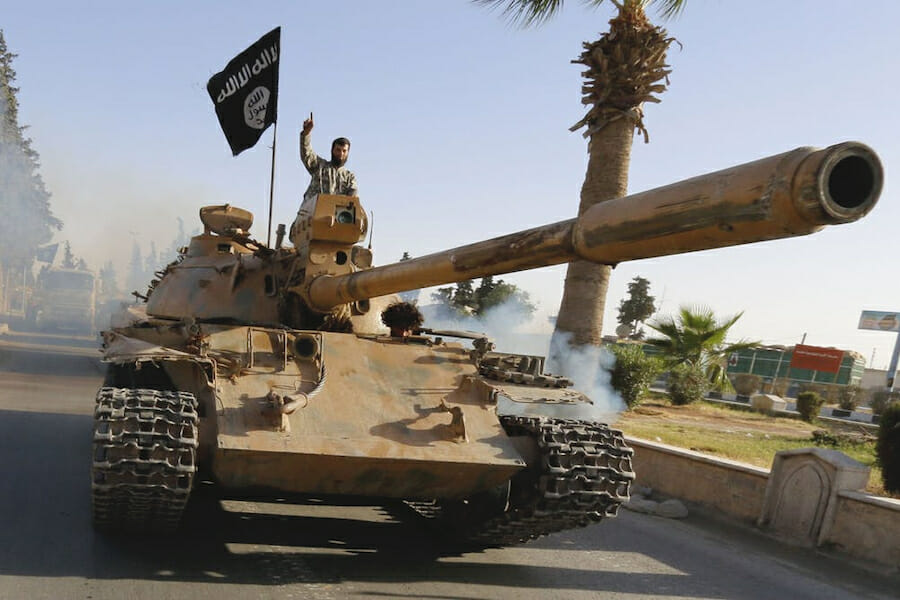
Beyond Iraq: Causes and Consequences of the ISIS Advance
It is astonishing how rapidly the fragile state of Iraq is imploding, as the Islamic militant group, the Islamic State of Iraq and Syria (ISIS), advances on many Iraqi cities. The 2003 military intervention by the United States and its allies destabilized the political and social framework of the country, which Nouri al-Maliki has completed. Resulting in sectarian divisions, through a progressive marginalization of the Sunni population. The surrender of Iraqi troops is the result of this foolish and short-sighted policy. The huge investment (about $25 billion) in their training by the international community was insufficient.
The breakup of Iraq exacerbates the security framework in the Middle East, with possible repercussions at the international level. ISIS can count on about 10,000 fighters. However, the basin of sympathizers and supporters from where it can draw resources is much broader. Events in Syria should have represented a wake-up call to policymakers both locally and internationally. The rapid conquest of Raqqa and other territories in northern Syria had already highlighted the great military capabilities of the group and its high degree of organization.
In a few months, ISIS emerged as potentially the main opposition to the government of Bashar al-Assad. Indeed, the latter has so far been careful about opening a direct confrontation with the terrorist group, preferring to play the card of the jihadist bogeyman to hinder the flow of money and weapons from countries that want his fall (including the United States). However, this was not enough to break the inertia. The White House seems again to be taken by surprise by the events.
The threat posed by al-Qaeda or, at least, from its historic core is now marginal. In recent years, the organization led by Ayman al-Zawahiri has shown its growing inability to exercise some kind of control over a number of active terrorist groups operating in the Middle East and North Africa. The insubordination of Abu Bakr al-Baghdadi, the charismatic leader of ISIS, inflicted a serious blow to al-Qaeda, which revealed to the world that al-Qaeda now represents little more than a brand. The success of ISIS could now permanently alter the balance of power in the galaxy of jihadists, providing the al-Baghdadi group with new resources to realize his plans, namely the consolidation of a caliphate that stretches almost to the border with Iran.
Along with Saudi Arabia, Iran is one of the main protagonists of the events of recent years. By exacerbating the confrontation between Sunnis and Shiites, Tehran (the main sponsor of the government of al-Maliki) and Riyadh have destabilized the entire region, with severe consequences that only now have begun to show their severity. The struggle for leadership in the region is underway in other theatres: Lebanon, Bahrain, and Yemen, just to mention a few. These are countries that have deep divisions and their governments have so far been unable to provide a political class that is capable of addressing national interests.
In the short term, events in Iraq seem likely to push the U.S. in seeking an agreement with Iran over its nuclear program with even more urgency and, a compromise on the Syrian issue. Arresting the advance of jihadists in the region is a top priority, but this task cannot be accomplished without the cooperation of Bashar al-Assad. “Moderate” rebel groups appear too weak and divided to be entrusted with such a delicate mission. Even if Washington intensifies its support for Syria’s moderate rebel groups in coming months, such a policy would possibly reduce the bargaining power of the Syrian government and its allies rather than effectively reconfigure the balance of power in the country.
The disintegration of Iraq and the advance of ISIS is fuelling a lot of anxiety even in Kabul. The U.S. administration has recently announced that the complete withdrawal of troops from Afghanistan will be finalized by 2016. Two years does not represent a sufficient time span for the country to complete the process of effective consolidation of national institutions, or the limitations of internal and regional stakeholders who oppose these dynamics. On the contrary, these stakeholders can draw an important lesson from the events going on in Iraq, reinforcing their belief that pursuing their own partisan interests represents the best option.
The U.S. disengagement from the region constitutes, for example, a strong disincentive for Pakistan to end its policy of supporting terrorist groups active in the country that are still regarded as tools of influence and an asset. Therefore, in the coming years, Afghanistan could revert back to a state in chaos and a harbinger of new conflicts and further threats to international security.
In the future, historians will probably describe the advance of Abu Bakr al-Baghdadi and his men as another sign of the declining power of the United States, a country more and more eager to focus on domestic priorities and encouraged by its emerging energy independence. The U.S. withdrawal from the Middle East leaves behind a toxic aftermath and divided countries, a dream come, the creation of an Islamic caliphate in the heart of the Middle East.

